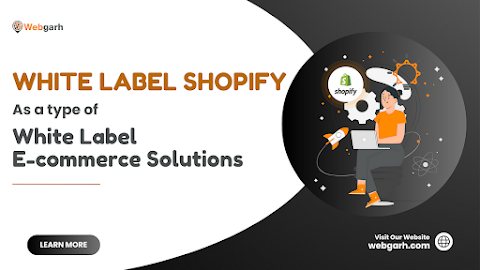How to Choose the Right White Label Shopify Service Provider?
Introduction:
In the competitive world of e-commerce, businesses often turn to white-label solutions to expedite their growth and enhance their online presence. When it comes to white-label Shopify services, choosing the right service provider is crucial. With numerous options available, this article will guide you through the essential factors to consider when selecting the ideal white-label Shopify service provider for your business.
Assess Your Business Needs:
Before embarking on your search for a white-label Shopify service provider, it's essential to evaluate your business requirements. Determine the specific features and functionalities you need for your e-commerce store. This will help you narrow down your options and find a provider that aligns with your goals.
Expertise and Experience:
Look for a white-label Shopify service provider with a proven track record and extensive experience in the e-commerce industry. Assess their portfolio and examine the quality of their previous work. A reputable provider will have a strong understanding of the Shopify platform and a demonstrated ability to deliver successful projects.
Customization and Flexibility:
Every business has unique requirements and branding guidelines. Ensure that the white-label Shopify service provider offers sufficient customization options. They should be able to tailor the design, features, and functionality of your e-commerce store to match your brand identity and meet your specific needs. Flexibility is crucial to ensure that the end product reflects your vision accurately.
Technical Support and Maintenance:
Building and launching an e-commerce store is only the beginning. Ongoing technical support and maintenance are vital for the smooth functioning of your online business. Ensure that the white-label Shopify service provider offers reliable support and maintenance services. Prompt assistance in case of any technical issues or updates will help you avoid downtime and provide a seamless experience to your customers.
Integration Capabilities:
Consider the integration capabilities of the white-label Shopify service provider. Integration with third-party applications and tools is often necessary to enhance the functionality of your e-commerce store. Check if the provider supports integrations with popular payment gateways, marketing tools, inventory management systems, and other crucial applications that are essential to your business operations.
Scalability:
As your business grows, your e-commerce store needs to scale accordingly. Ensure that the white-label Shopify service provider can handle your anticipated growth and accommodate increased traffic and transactions. A scalable solution will prevent limitations and the need for frequent migrations in the future.
Pricing and Cost-effectiveness:
While cost is an important consideration, it should not be the sole determining factor. Look for a white-label Shopify service provider that offers a balance between affordability and value. Compare the pricing plans of different providers, considering the features and services included. Remember that investing in a reliable and high-quality solution will yield long-term benefits.
Conclusion:
Selecting the right white-label Shopify service provider can significantly impact the success of your e-commerce business. By carefully considering factors such as expertise, customization options, technical support, integration capabilities, scalability, and cost-effectiveness, you can make an informed decision. Webgarh Solutions, with their extensive experience and expertise in white-label Shopify services, is a prime example of a reliable provider that can cater to your business's unique needs. Choose a provider that aligns with your goals, and watch your e-commerce store thrive.




Comments
Post a Comment